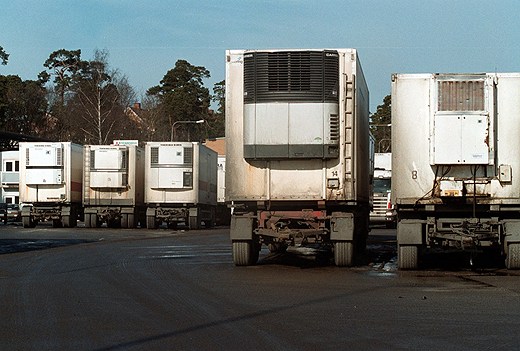Sweden will likely miss its climate goals
 Sweden’s carbon emissions dropped in 2011, but the country will miss its 2020 target for reductions. One of the Environmental Protection Agency’s main concerns is the transport sector, whose carbon emissions jumped in 2011.
Sweden’s carbon emissions dropped in 2011, but the country will miss its 2020 target for reductions. One of the Environmental Protection Agency’s main concerns is the transport sector, whose carbon emissions jumped in 2011.
Sweden’s carbon emission reduction goals are in line with the UN Framework Convention on Climate Change that hopes to limit humans’ negative impact on the climate system and limit the increase in global temperatures.
Preliminary statistics from the Environmental Protection Agency show that Sweden released 61.5 million tons of greenhouse gases during 2011, a six percent drop from 2010.
Experts describe 2011 as a more normal year, compared to 2010, a year in which carbon emissions jumped because of a cold winter and a better economy. 2009 stuck out because the country’s economy struggled and emissions dropped as a result.
The agency says if you rule out 2010, total carbon emissions have dropped since 1998. “The latest figures follow the long-term trend,” says Maria Lidén, at the Environmental Protection Agency.
The agency says the latest prognoses have Sweden missing its goal by 0.9 million tons. But the agency still thinks there is a chance that they could reach the target with the current climate policy.
However, the Green Party has criticized the government’s policy. “We’re not going to meet our goals with the pace we have,” says Åsa Romson, spokesperson for the Green Party, to Swedish Television. “We’re going to be about 150 years late in meeting that goal and it’s not at all acceptable. It’s because we don’t have an active climate policy in Sweden.”
One major contributor to carbon emissions, the transport sector, which accounts for one third of all emissions, has failed to lower its emissions since the early 1990’s. “It’s a problem. Emissions in the transport sector are extremely stabile. Nothing is really happening,” says Maria Lidén.
Car emissions have dropped since the 1990’s because automobiles have better gas mileage. But the heavy transport industry has drastically increased its emissions.
Biofuel-powered heating of residences and business has brought about the greatest reductions in carbon emissions over the long-term.
For more stories from Radio Sweden, click here


